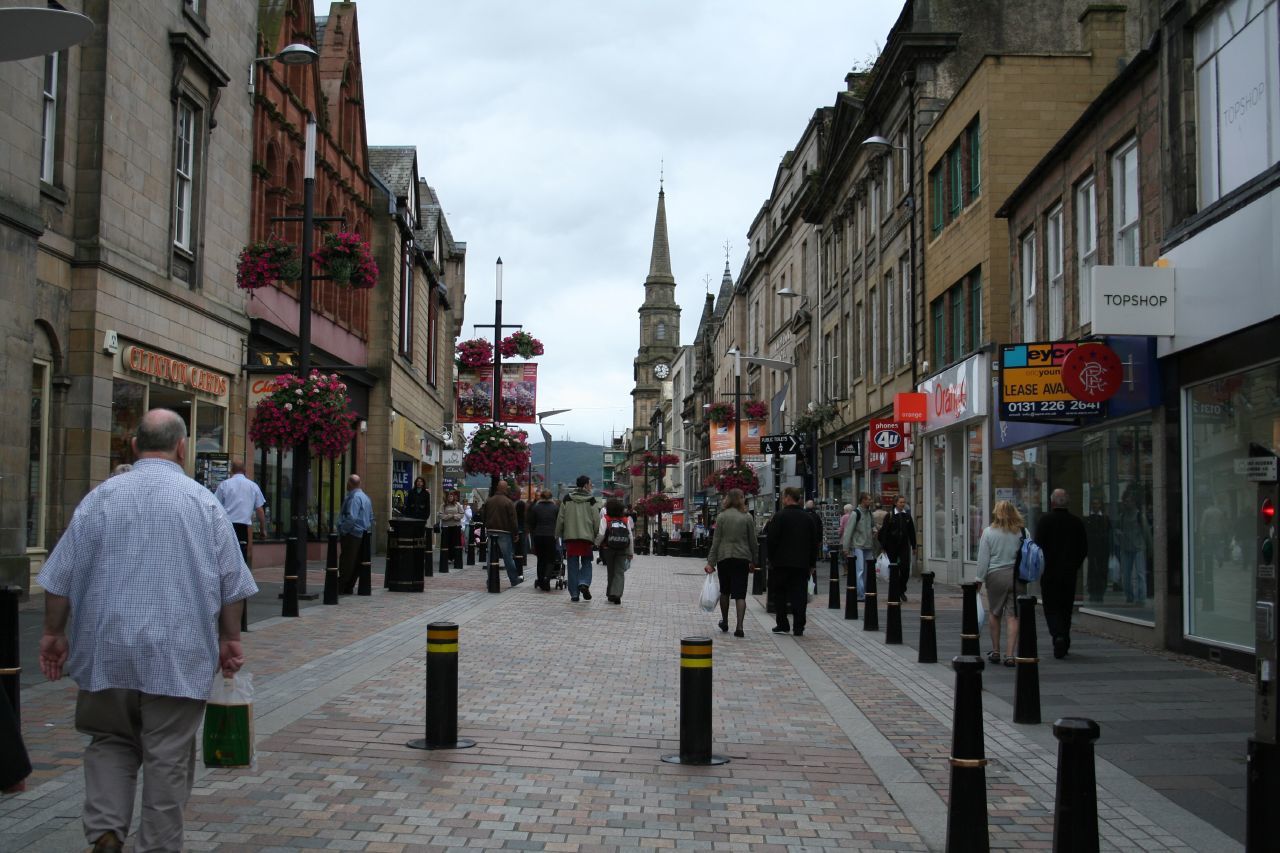Shock rates rises have already led to investors turning their backs on Inverness – and work to revive the city centre has been thrown into jeopardy.
The claims were made by business leaders last night amid growing “anger” and “confusion” at soaring business rates.
City centre representatives Inverness BID said high street firms were being unfairly targetted while at the same time retail park outlets were having their bills cut.
The group revealed plans to to host a summit next month to discuss the changes, amid fears it will undermine ongoing efforts to breathe new life into the historic heart of the Highland capital.
Business owners will have the chance to grill the assessors who controversially revalued their companies at the meeting at the end of March.
BID chief executive Mike Smith claimed last night that a major investor had already pulled the plug on a city centre project because of the rises, while a Ross-shire chalet park owner spoke of how it could ruin his efforts to sell up and retire.
Many hoteliers and retailers across the country have been in open revolt since the full scale of the business rates changes began to emerge in recent weeks.
The Scottish Government has been urged to act amid dire warnings about the impact on jobs and the future viability of many firms, although ministers insist the valuations are independent and they have delivered an overall tax cut of £155million next year.
Mr Smith described the basis for the new rates as “very strange”.
“I think most people would have expected out-of-town retail would be hit with increases, because it’s very successful, the high street would stay neutral, and the old town would decrease,” he said.
“What has happened is that visitor accommodation has been hammered, the hospitality trade has been very badly hit, about 25%. But out-of-town is going down by 21%, apart from Tesco.
“I think everyone is struggling to understand the concept. We are all bemused.
“What we don’t understand is who has made the decisions. The assessors obviously assess values, but on what guidelines? It doesn’t seem to make any sense.”
City hotels such as the Mercure Inverness, the Kingsmills, the Waterside and the Acorn Guest House have all complained about huge rises, as well as other well-known Highland names such as the Applecross Inn and Kylesku Hotel.
Mr Smith had heard evidence of the shake-up already having an impact on the local economy, even before the new charges are introduced in April.
“I know one business that was going to invest has now decided that, because of the increase in rates, not to invest,” he said.
“I think any tax has to be fair and there doesn’t seem to be any fairness. I think there’s a lot of anger. I think there’s a lot of confusion.
“We’ve got policies trying to promote and help city centres but Amazon has had a quite substantial rate reduction. It beggar’s belief.”
Eddy Robberts, who owns the Ranch Chalet Park, near Invergordon, had put his business up for sale, but now fears the rates rise will scupper his chances of finding a buyer.
“I’m 79 and none of our children are interested in it, so we need to get rid of it,” he said.
“The rateable value was £25,000 and is now £37,000, and we’ve also got a small bar restaurant, which is definitely not going to be lower than it was.
“We can’t put our prices up because the prices for the year are set, and we can’t send people another bill, that’s just not on.
“It makes it that much less attractive for prospective buyers to buy the place like that. The other thing is that people have to borrow money and banks are looking at profitability.”
Mr Robberts, who has run the business for 40 years, added: “I’m not happy at all.
“To be quite honest I’m not happy paying taxes in any cricumstances but at least with income tax it’s based on what you earn. This doesn’t take that into account.
“We’re lucky it’s a good running business. I’m definitely going to appeal, but we have to wait for the assessor’s letter in March and the new rates are going in in April.”
A Scottish Government spokesman said: “Our package of business rate measures will deliver an overall tax cut of £155million next year, helping those who might be impacted by a revaluation, while more than half of businesses will pay no rates and seven out of 10 will pay the same or less.
“The first step open to all those businesses who are concerned is to contact the assessor and discuss how they worked out the provisional value.
“Companies have until September to appeal and we would encourage firms to take up those opportunities.”
